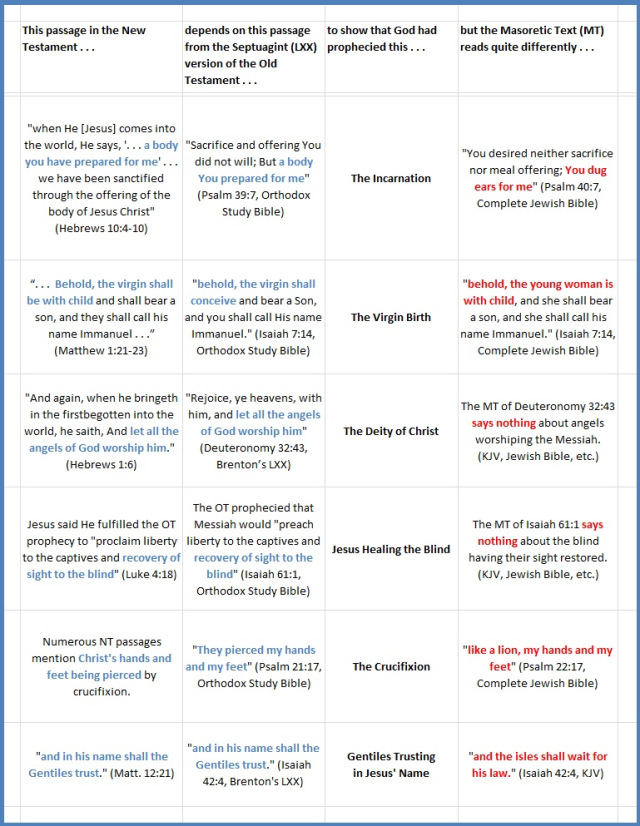“I have a great devotional bible…”
These are words I hear periodically in our parish bookstore (which I manage). Typically it is in the context of me attempting to sell them an Orthodox Study Bible. Certainly I have as a goal the desire to sell product as we try to make the bookstore successful, but my primary goal is that the customer get something that will be edifying. Since there is currently no Orthodox Study Bible, I know that the devotional will either be Catholic or Protestant, and most likely Protestant (just based on numbers). In either case, the theology in the devotions will likely then be erroneous at times. As long as the reader is aware of that it might not be much of a problem, however that is sufficient for me to simply stay away. Some people have the bible and simply use it as a bible, ignoring, for the most part, the devotions. This would generally be okay, but if the bible is a Protestant devotional bible, then I know it is very likely one of the most insidious translations out there. My goal in writing this post is to provide some basic reasons as to why all Christians should avoid the NIV, as well as why they should prefer a Septuagint based translation over any other.
The translators of the NIV are guilty of a certain level of intellectual dishonesty. It is a common view of Protestantism, held by both Protestants and non-Protestants, that it promotes the idea that all people can read the bible for themselves and reach their own doctrinal conclusions. To some degree, this is what the reformers and proto-reformers (Wycliffe, etc.) were after, although the classical reformers did understand that the me and my bible attitude of modern evangelicalism would not fly. The NIV seeks to effectively limit people from truly exploring the scriptures themselves by pursuing a translational approach known as “thought for thought.” That is, the translators give us, as readers, what they believe the idea was that a particular author was trying to get across. What this means is that the translators will give us their doctrine disguised as Scripture.
Selective and Misleading Translation
What happens because of this? The first thing is that the translators will translate identical Greek words quite differently in order to support their doctrinal positions. The most cited and perhaps egregious example is the handling of the Greek word παραδόσις. The word means tradition, and appears in the NIV New Testament as tradition whenever tradition is spoken of in a negative light (Matt 15:2, 15:3, 15:6, Mark 7:3, 7:4, 7:5, 7:8, 7:9, 7:13, Gal 1:14, and Col 2:8), and only once when it is spoken of in a positive light (1 Cor 11:2), and this appears to be only in more recent editions, as originally it was translated as teachings in this verse, as it remains translated in 2 Thes 2:15 and 3:6. In the latest editions, it appears that at least a footnote is used to indicate that the word could be translated as tradition, which is something of an improvement.
Similar things are done with the Greek word σαρξ which literally means flesh. The translators of the NIV insert their theology by at times changing the translation to sinful nature, which alters the actual meaning. Also, the word εργον, which means works is only translated as works when it appears in a negative sense, and to something else (things I have done or some such).
Mistranslation seems to infect the entire book, and you can read more about that here. This is, in my opinion, the number one reason to avoid the NIV.
The Septuagint
Virtually all English translations of the Bible have, as the basis of their translation, the Masoretic text (MT). The MT was produced beginning in the 7th century but was based largely on a particular text type of the OT that had existed at least as far back as the Qumran community. It was the case that there were many different variant forms of the Old Testament. Of those, one was the MT or proto-MT, and another was the septuagint, or LXX. There were other text traditions as well. We know from its use by New Testament and from statements by Jewish scholars and historians (most notably Josephus and Philo) that the LXX was widely used throughout the Jewish world up through the beginning of the Christian era. It began to be jettisoned in favor of the MT text type by Jews as the LXX provided much more scriptural support for the Christian claims about Jesus than the MT.
The LXX itself is a translation, but its roots lie in the second or third century BC. It then reflects another textual tradition. The legend is that a group of 70 scholars (hence LXX) was assembled by Ptolemy II to produce a Greek translation of the Torah for use by Jews (in particular in Alexandria) who were no longer fluent in Hebrew, but well understood Koine Greek. It represents a different text tradition from that behind the Masoretic text. Not only are there some verse changes, but the canon (or list of books) is more extensive in the Septuagint than in the Masoretic text.
For the Orthodox Christian, it is sufficient to say that the LXX is the Old Testament of the Orthodox Church. Thus, it is the text that should be first and foremost used by Orthodox believers. However, it is worthwhile to explore issues related to both the canon and the textual variants.
Textual Variants
The first problem with the Masoretic text is that it was not the text favored by the authors of the New Testament. Following is a table describing some key instances where a quote in the New Testament, typically regarding a messianic prophecy, comes from the LXX and the parallel MT passage is significantly different.
I wish I could recall the original source for this diagram. I used to use it when teaching a catechumenate class in the Episcopal Church over a decade ago, but ran across it recently in a blog post from 2012. It may have come from the Orthodox Study Bible project (lxx.org when that domain still existed).
Recently, I participated in a program where we had the goal of reading the Orthodox Old Testament in 100 days. It was quite a task, but enormously beneficial. There were numerous places where I learned something new by virtue of the fact that we were using the LXX. For instance, when using the LXX we learn that Adam and Abraham were not sleeping when God interacted with them, as Masoretic based texts would have us believe. Rather, they were in a state of ecstasy – a trance of sorts. When Jacob wrestles with God in the book of Genesis, the Masoretic text tells us that Jacob named the place Peniel, “…because I saw God face to face, and yet my life was spared.” That is, in spite of the fact that he saw God face to face he managed to live. The Greek of the LXX varies on two key points. The first is that the Greek doesn’t support the presence of the word “yet”. Further, it states that Jacob’s soul was saved. So instead of being preserved from physical death, we learn that Jacob’s soul is saved with the implication that his soul was saved because he saw God face to face. The latter is definitely a Christian perspective and the former reflects the Jewish views about God. There are numerous other examples of this sort of thing throughout the Old Testament. Particularly fun are the places where the Hebrew word “anointed” appear. The LXX, of course, would have the Greek word Χριστοσ, so the English is translated straight across as Christ. Makes certain passages really stand out.
For a more detailed review of Masoretic vs. Septuagint texts, I would recommend starting here.
The Canon
The other issue with variants is the canon itself. There is so much beauty and depth excluded from the Old Testament by excluding the books now called Apocrypha by most protestants. In particular the Wisdom of Solomon and Ecclesiasticus (Sirach). Of particular note is the impact of excluding the book of Tobit. The famed questioning of Jesus by the Sadducees in Matthew 22:23-32 is not simply referring to a story the Sadducees made up in their cleverness, but, in fact, refers to events in the book of Tobit. That book is largely a tale of redemption. In the words of Fr. John Peck, the story is about:
A loving Father, sends his only Son, accompanied by a holy Spirit, to rescue a helpless Bride held captive by an evil spirit who fills her life with hopelessness and death. This Son defeats the evil spirit, saves the Bride, and takes her back to live with Him in the Father’s house.
When Jesus chastises the Sadducees for not knowing Scripture, he is particularly pointing to this story which is a foreshadowing of the incarnation (and note that Christ views Tobit as Scripture).
Conclusions
A large number of Bibles have been published providing devotionals for different groups of people based on varying needs. Virtually all of these are based on the NIV, which is problematic for anyone wishing to really study the Word of God. What you are presented with is a text that is both mistranslated to push a specific religious perspective and truncated to limit the reader’s ability to fully appreciate the Old Testament and both its prophecies and how it informed the writing of the New Testament. This would be problematic for everyone, and then for individuals who are not Evangelical, you have the additional problem that the theology in any such devotions would be specifically Evangelical and thus filled with numerous errors. For those reasons, my response when met with that phrase is that they should get an Orthodox Bible, prayer book, and maybe the writings of one of the numerous saints of our Church, and go with that.

